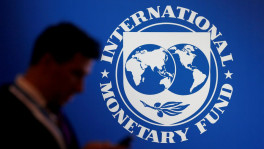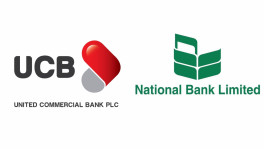Similarities between The Great Depression of 1929 and now
The stock market crash caused goals to change from maximising profit to minimising loss

In July 1914, World War I broke out. All of Europe was on fire and eventually the whole world was affected. The big powers were desperate to win the war and, because of that, they needed a continuous and ample supply of food and equipment. As the US was not actively involved in the war at the beginning, The Allies turned to them for weapons, food and equipment. You know the gates of fortune have opened wide for you when you have such desperate customers waiting at your gate with large amounts of money to buy from you.
Demand went sky-high. Farmers in the US started producing as much wheat as they could and were able to sell it at a pretty good price. After a few years, when the US joined the war, the demand for food and equipment rose even higher. It was probably the best time ever to invest in the US since the economy was booming and people were making unimaginable amounts of money.
Although World War I ended in 1918, the demand for wheat did not decrease because the entire world was still recovering from the impact of the war. When US farmers realised that, they started taking huge loans from the banks to buy more land and equipment so that they could produce more wheat. This led to increased prices of real estate, but people still bought more land hoping that they could sell it at a higher price in the future. The same scenario happened in other industries as well. Many companies emerged that existed only on paper – with no concrete financial structure. It was happening because people were putting blind faith in the economy and throwing around insane amounts of money on the stock market, hoping to capitalise in the future, escalating prices even more.
The economic bubble grew further when people from all over Europe started investing in the US as well. Many US companies were overvalued because most of these investments were based on speculation.
When everything is going well, you start to believe that the situation will last forever. However, sooner or later, reality shows its true face! Soon, Europe started recovering from the aftermath of the war and began harvesting plenty of wheat. France and Italy, with their bumper harvest of wheat in August 1929, started mitigating Europe's demand. This caused a decline in demand for US wheat. Sellers in the US had millions of bushels of unsold wheat left in their stock. The price of wheat dropped from $1.49 per bushel to $1.31 per bushel. The stock market had fallen. The situation worsened when people started panic-selling their stocks to somehow cash out their money. That day, October 29, 1929, is still known as Black Tuesday.
People had no idea that it was just the beginning of their misery. As wheat prices had fallen, farmers could not pay back their debts – which put extreme pressure on banks. With no money in the market, people who had savings in banks went to withdraw their money. However, since the borrowers of banks could not pay back their money, banks also could not pay the people from their savings. Within a year, more than 700 banks were shut down. It was not about maximising profit anymore. It was about somehow minimising loss. Many strong businesses also declared bankruptcy. The news spread to Europe and they also panicked because they had big investments in the US as well. Soon the entire world was engulfed by The Great Depression.
Can we correlate this story to what is happening now? The context might not be exactly the same, but with the outbreak of Covid-19, there is economic havoc ahead of us. Just like the US farmers who were affected in 1929 due to declining demand for wheat, our readymade garment producers of Bangladesh are experiencing the same situation. As the European and US customers of our clothing are currently locked down at home due to the novel coronavirus' outbreak, hardly any clothing stores are open there. Also, there is a probability that this lockdown situation will continue for the next one-to-two months.
Even when the lockdown ends, people will be reluctant to spend money on purchasing clothes as they will be focusing on fighting the upcoming recession and minimising their expenditures. Now, with no customers, no sales forecast and no space in their already-filled warehouses, the large clothing brands have no other option but to cancel or postpone the orders that they have given to our Bangladeshi factories. This decrease in demand has already caused immense inventory costs for local suppliers. With no shipment of garments from Bangladesh, these suppliers will face big difficulties in receiving payment and managing the cash flow of their business. There is a big chance they will not be able to pay their debt to the banks for a certain period of time – which will put pressure on the banks. If the banks do not get the money they have lent, how will they be able to pay the people who have been saving their money with them?
Are we prepared for the tough time ahead?


 Keep updated, follow The Business Standard's Google news channel
Keep updated, follow The Business Standard's Google news channel
















